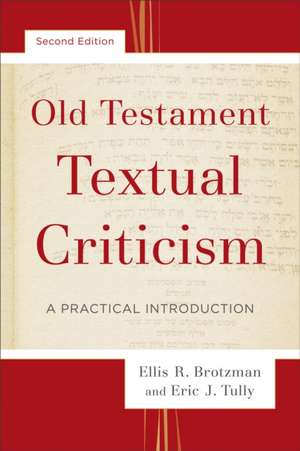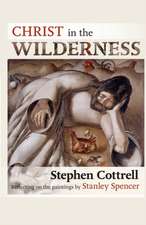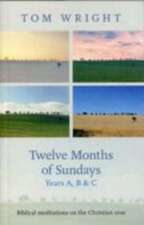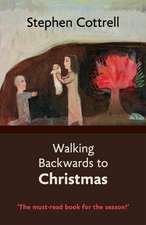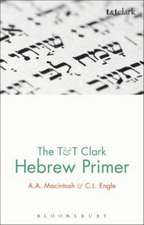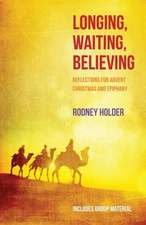Old Testament Textual Criticism – A Practical Introduction
Autor Ellis R. Brotzman, Eric J. Tullyen Limba Engleză Paperback – 18 iul 2016
This accessibly written, practical introduction to Old Testament textual criticism helps students understand the discipline and begin thinking through complex issues for themselves. The authors combine proven expertise in the classroom with cutting-edge work in Hebrew textual studies. This successful classic (nearly 25,000 copies sold) has been thoroughly expanded and updated to account for the many changes in the field over the past twenty years. It includes examples, illustrations, an updated bibliography, and a textual commentary on the book of Ruth.
Preț: 145.02 lei
Nou
Puncte Express: 218
Preț estimativ în valută:
27.75€ • 30.24$ • 23.38£
27.75€ • 30.24$ • 23.38£
Carte disponibilă
Livrare economică 02-16 aprilie
Livrare express 19-25 martie pentru 26.79 lei
Preluare comenzi: 021 569.72.76
Specificații
ISBN-13: 9780801097539
ISBN-10: 0801097533
Pagini: 272
Dimensiuni: 152 x 229 x 15 mm
Greutate: 0.41 kg
Ediția:2
Editura: Baker Publishing Group – Baker Books
ISBN-10: 0801097533
Pagini: 272
Dimensiuni: 152 x 229 x 15 mm
Greutate: 0.41 kg
Ediția:2
Editura: Baker Publishing Group – Baker Books
Textul de pe ultima copertă
"It is a pleasure to welcome Brotzman's work in its updated form. There is no better introduction to the field of Old Testament manuscripts and their text-critical study. It is ideal for the student with little or no background."
--Richard S. Hess, Denver Seminary "Brotzman's introduction has been a helpful guide for over two decades. His collaboration with Tully in this new edition ensures that the volume will continue to be useful as an entrEe into the bewildering world of Old Testament textual criticism. I am pleased to see that the new edition refines the goal of textual criticism in light of our current understanding of textual composition and transmission in antiquity."
--Bill T. Arnold, Asbury Theological Seminary "This updated version of Brotzman's original work provides a welcome introduction to Old Testament textual criticism that is well informed by recent scholarship. Incorporating current theories and analyzing newly developed resources, Brotzman and Tully's judicious work gives students a firm foundation for understanding textual criticism in its unique Old Testament environment and for practicing it responsibly."
--John H. Walton, Wheaton College "This introduction to Old Testament textual criticism has been expanded and updated throughout without sacrificing readability and the practical features that have made it a popular seminary textbook. The complicated and evolving theories on the textual history of the Old Testament are explained clearly, while the new appendix discussing the goal of textual criticism allows the authors to avoid oversimplifying the issues. The chapter introducing BHS has been expanded to include BHQ and compares their textual apparatuses. Such updates will enable this textbook to serve the next generation of seminary students."
--John A. Cook, Asbury Theological Seminary "This practical book shows readers how to take first steps in the practice of Old Testament textual criticism and how it is relevant to exegesis. The authors present a comprehensive yet readable survey of the transmission history of the Old Testament text, they show how to make proper use of the standard critical editions of the Hebrew Bible, and they present a workable approach for actually doing Old Testament textual criticism. By unpacking the entire critical apparatus of Biblia Hebraica Stuttgartensia for the book of Ruth, they provide expert guidance in how to decipher and utilize the textual information found there. I enthusiastically recommend it!"
--Richard A. Taylor, Dallas Theological Seminary
--Richard S. Hess, Denver Seminary "Brotzman's introduction has been a helpful guide for over two decades. His collaboration with Tully in this new edition ensures that the volume will continue to be useful as an entrEe into the bewildering world of Old Testament textual criticism. I am pleased to see that the new edition refines the goal of textual criticism in light of our current understanding of textual composition and transmission in antiquity."
--Bill T. Arnold, Asbury Theological Seminary "This updated version of Brotzman's original work provides a welcome introduction to Old Testament textual criticism that is well informed by recent scholarship. Incorporating current theories and analyzing newly developed resources, Brotzman and Tully's judicious work gives students a firm foundation for understanding textual criticism in its unique Old Testament environment and for practicing it responsibly."
--John H. Walton, Wheaton College "This introduction to Old Testament textual criticism has been expanded and updated throughout without sacrificing readability and the practical features that have made it a popular seminary textbook. The complicated and evolving theories on the textual history of the Old Testament are explained clearly, while the new appendix discussing the goal of textual criticism allows the authors to avoid oversimplifying the issues. The chapter introducing BHS has been expanded to include BHQ and compares their textual apparatuses. Such updates will enable this textbook to serve the next generation of seminary students."
--John A. Cook, Asbury Theological Seminary "This practical book shows readers how to take first steps in the practice of Old Testament textual criticism and how it is relevant to exegesis. The authors present a comprehensive yet readable survey of the transmission history of the Old Testament text, they show how to make proper use of the standard critical editions of the Hebrew Bible, and they present a workable approach for actually doing Old Testament textual criticism. By unpacking the entire critical apparatus of Biblia Hebraica Stuttgartensia for the book of Ruth, they provide expert guidance in how to decipher and utilize the textual information found there. I enthusiastically recommend it!"
--Richard A. Taylor, Dallas Theological Seminary
